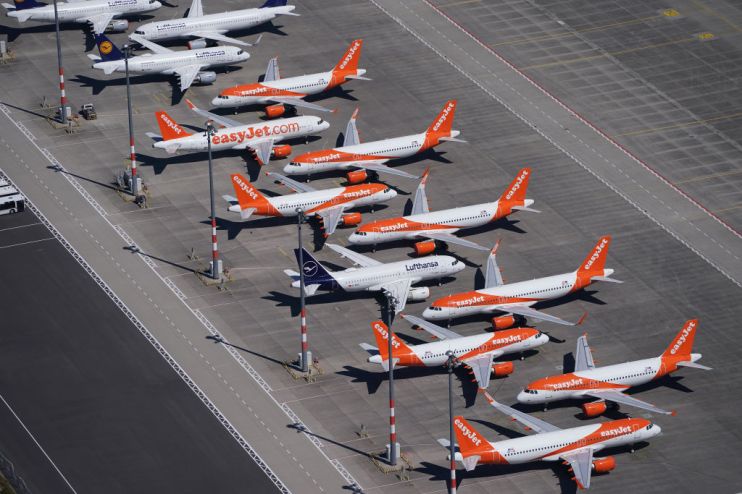Easyjet slims losses to £133m as it dreams of profitability with Easter and summer bookings already flying high

Easyjet expects to deliver a full-year profit after shrinking its quarterly losses by 37 per cent, the company said today, as chief executive Johan Lundgren remained positive about the airline’s preparedness to deal with higher passenger levels this summer.
The low-cost carrier announced today that its loss before tax in the three months ended 31 December went down to £133m after passenger levels grew 47 per cent to 17.5 million.
While group revenue surged 83 per cent to £1.5bn, with revenue per seat going up 36 per cent to £68.47.
“We have seen strong and sustained demand for travel over the first quarter, carrying almost 50 per cent more customers compared with last year,” said Lundgren.
“This strong booking performance, aided by the airline’s step changed revenue capability, has driven an £80m year-on-year boost in the first quarter with continued momentum as customers prioritise spending on holidays for the year ahead.”
Easter bookings – Easyjet said – are 24 per cent higher compared to 2019 levels, while summer bookings are at 60 per cent already, as the airline expects to reach pre-Covid capacity by September.
Lundgren told journalists this morning he was feeling confident about the wider network’s ability to deal with higher passenger levels and avoid a repetition of last summer’s travel chaos.
Easyjet was one of the airlines that was hit the most by last summer’s travel chaos, when a combination of booming travel demand and staff shortages led to severe delays and disruption as some of Europe’s biggest hubs, including Amsterdam Schiphol and Gatwick.
“There will be more flights this summer than it was last summer, probably between 10 to 15 per cent more,” the chief executive said. “[But] everybody is better prepared. We feel very confident with our resilience.”
Commenting on the results, Sophie Lund-Yates, lead equity analyst at Hargreaves Lansdown, said that Easyjet has shown how “a post-pandemic recovery is done.”
“Strong demand means easyJet has upgraded profit expectations for the half year, with bookings and ticket yields all pointing to better times ahead,” she said.
Lundgren raised a few eyebrows late last year when it was announced that he had received a £3m remuneration package despite Easyjet posting a loss for the third consecutive year in September.
The chief executive received in December a £1.2m bonus in addition to his £833,000 annual salary as well as shares worth £925,000.
The airline justified the sum saying Lundgren – at Easyjet’s helm since 2017 – had managed a “billion-pound turnaround” while meeting “stringent bonus targets.”